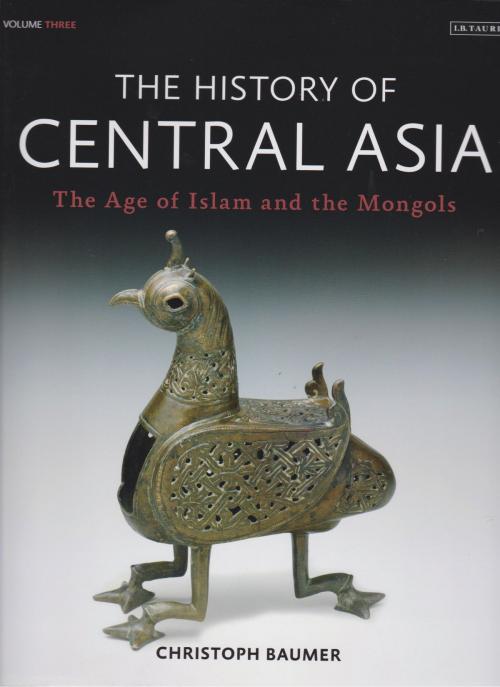| Author: | Christoph Baumer | ISBN: | 9781838609399 |
| Publisher: | Bloomsbury Publishing | Publication: | May 30, 2016 |
| Imprint: | I.B. Tauris | Language: | English |
| Author: | Christoph Baumer |
| ISBN: | 9781838609399 |
| Publisher: | Bloomsbury Publishing |
| Publication: | May 30, 2016 |
| Imprint: | I.B. Tauris |
| Language: | English |
Between the ninth and the fifteenth centuries, Central Asia was a major political, economic and cultural hub on the Eurasian continent. In the first half of the thirteenth century it was also the pre-eminent centre of power in the largest land-based empire the world has ever seen. This third volume of Christoph Baumer's extensively praised and lavishly illustrated new history of the region is above all a story of invasion, when tumultuous and often brutal conquest profoundly shaped the later history of the globe. The author explores the rise of Islam and the remarkable victories of the Arab armies which - inspired by their vital, austere and egalitarian desert faith - established important new dynasties like the Seljuks, Karakhanids and Ghaznavids. A golden age of artistic, literary and scientific innovation came to a sudden end when, between 1219 and 1260, Genghiz Khan and his successors overran the Chorasmian-Abbasid lands. Dr Baumer shows that the Mongol conquests, while shattering to their enemies, nevertheless resulted in much greater mercantile and cultural contact between Central Asia and Western Europe.
Between the ninth and the fifteenth centuries, Central Asia was a major political, economic and cultural hub on the Eurasian continent. In the first half of the thirteenth century it was also the pre-eminent centre of power in the largest land-based empire the world has ever seen. This third volume of Christoph Baumer's extensively praised and lavishly illustrated new history of the region is above all a story of invasion, when tumultuous and often brutal conquest profoundly shaped the later history of the globe. The author explores the rise of Islam and the remarkable victories of the Arab armies which - inspired by their vital, austere and egalitarian desert faith - established important new dynasties like the Seljuks, Karakhanids and Ghaznavids. A golden age of artistic, literary and scientific innovation came to a sudden end when, between 1219 and 1260, Genghiz Khan and his successors overran the Chorasmian-Abbasid lands. Dr Baumer shows that the Mongol conquests, while shattering to their enemies, nevertheless resulted in much greater mercantile and cultural contact between Central Asia and Western Europe.















